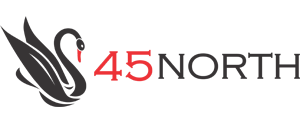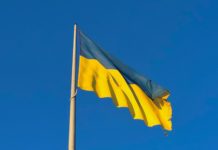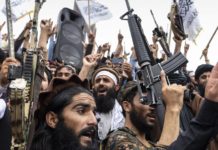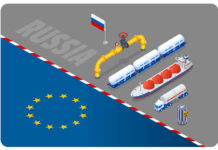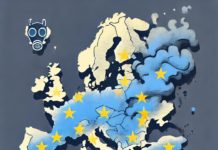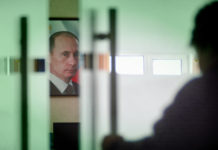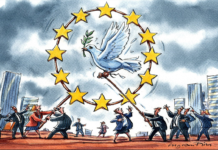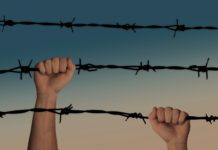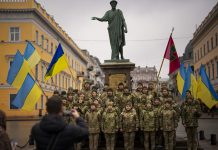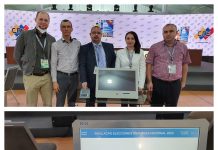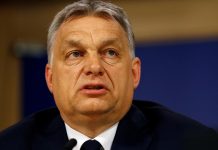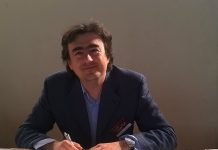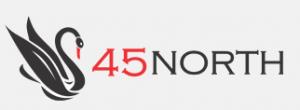Pentru limba engleză, click aici. For English, click here.
Adnen Chekhab este un student internațional din Algeria care studiază științe politice la Universitatea din București. El a fost de acord să răspundă la o serie de întrebări despre viața de student în România și de ce a ales să vină aici. În plus, el face și câteva observații personale despre oameni, locuri și politica românească.
Dragoș Ghimpe: Spune-ne mai multe despre tine. Din ce țară vii? Cum era viața ta înainte să te muți în România?
Adenen Chekhab: Numele meu complet este Adnen Chekhab, se scrie cu “ch”, deși am auzit mulți oameni spunându-mi “Kebab”. M-am născut în Algeria, unde mi-am petrecut majoritatea vieții și mă consider norocos, pentru că m-am născut într-o pătură educată a societății, amândoi părinții mei fiind profesori, scopul lor ca intelectuali fiind să ne îndrume pe mine și pe ceilalți trei frați ai mei către un drum al studiului, arătându-ne importanța educației în construirea personalităților noastre și dobândirea abilităților pentru viitoare oportunități în viață. Metodele lor stricte, dar eficiente, ne-au permis să învățăm lucruri încă de la o vârstă fragedă. La 10 ani vobeam deja franceză, iar la 12 ani vorbeam engleză.
Revenind la întrebarea ta inițială, legată de venirea mea în România, aveam o viață destul de instabilă din punct de vedere al studiilor și al obiectivelor mele de viitor, pentru că mereu am fost genul de persoană care știa ce vrea foarte bine, dar nu știa cum să obțină ceea ce voia. A trebuit să studiez aproape un an la universitate în țară, iar apoi m-am mutat în Franța, crezând că pot mai ușor să îmi găsesc drumul, o parte a familiei mele fiind deja stabiliță acolo, dar n-a fost cazul să fie așa. După multe lucruri pe care le-am făcut, sau cel puțin am încercat să le fac, am ajuns să studiez ce vreau, în limba în care îmi doresc (engleză) și, dintr-o pură coincidență, să fac asta în România.
D. G.: Cu ce te ocupi mai exact în România?
A. C.: Sunt student la zi, în anul III, la Facultatea de Științe Politice a Universității din București și, de asemenea, muncesc la o companie multilingvă, unde ofer servicii de orientare pe mai multe proiecte. Sunt implicat, în plus, și în aria non-guvernamentală, cu preponderență pe partea de drepturi ale omului, de asta fac muncă de voluntariat pentru mai multe ONG-uri, unul dintre ele fiind Freedom House România.
Activitățile menționate mai sus nu m-au oprit niciodată din a face ceea ce eu cred că este foarte important: activism politic. Încerc să fac tot posibilul să atrag atenția celorlalți asupra chestiunilor relevante din politică, atât la mine în țară, cât și în orice alt loc mi-e cu putință. Din această cauză am creat o publicație online unde scriem și publicăm pe mai multe subiecte. Am, de asemenea, multe articole publicate de diverse ziare și platforme, cum ar fi Geopolitica, USAREALLY și altele. Articolele pe care le public eu nu vizează doar situația politică din țara mea, ci și din zona Orientului Mijlociu, care a devenit o zonă de interes pentru mine, nu doar din apropierea culturală, religioasă și politică a țării mele cu Orientul Mijlociu, ci și pentru că această regiune a fost întotdeauna și încă este cea mai importantă “zonă fierbinte” din punct de vedere geopolitic.
Cu toate activitățile menționate mai sus, nu îmi mai rămâne foarte mult timp pentru altceva, dar uneori îmi place să mai ies cu prietenii în oraș și mă joc jocuri video de fiecare dată când am ocazia.
D. G.: Cum ai ajuns să alegi România în parcursul tău academic?
A. C.: Cum spuneam și mai devreme, o coincidență a făcut să ajung aici. Fratele meu mai mare mi-a sugerat asta, și n-a durat nici măcar o secundă să mă hotărăsc. România avea elementele principale pe care eu le căutam, în speță domeniul de studiu și limba în care voiam să studiez, respectiv engleza. Mulți dintre cititori se vor întreba de ce n-am ales să studiez același lucru în Franța, dar să nu uităm și aspectul financiar. Să studiezi în România e mult mai ieftin decât orice alt loc pe care îl aveam eu în minte la momentul respectiv, iar asta a jucat, de asemenea, un rol important în decizia mea.
D. G.: Cum ți se pare România? Cum e viața ta aici?
A. C.: Cu toții ați auzit aceeași poveste de la străini cum că România e o țară frumoasă și alte lucruri de felul acesta. Ei bine, este mai mult decât credeți voi, dar trebuie să o vezi pentru a înțelege, trebuie să călătorești peste tot prin ea pentru a îi înțelege farmecul. Dar frumusețea ei reală nu constă doar în castelele medieval sau orașe transilvănene minunate. Nu, este și în inimile oamenilor. Știm că peste tot sunt și oameni buni și răi, dar eu mereu încerc să văd și să admir impactul pe care îl fac oamenii buni.
Consider că viața aici și în special pe plan financiar, ca fiind mult mai ușoară decât în alte locuri. Da, calitatea vieții e puțin diferită, dar te poți dezvolta aici la fel ca în multe alte locuri care sunt considerate ca fiind “locuri mai bune de trăit”.
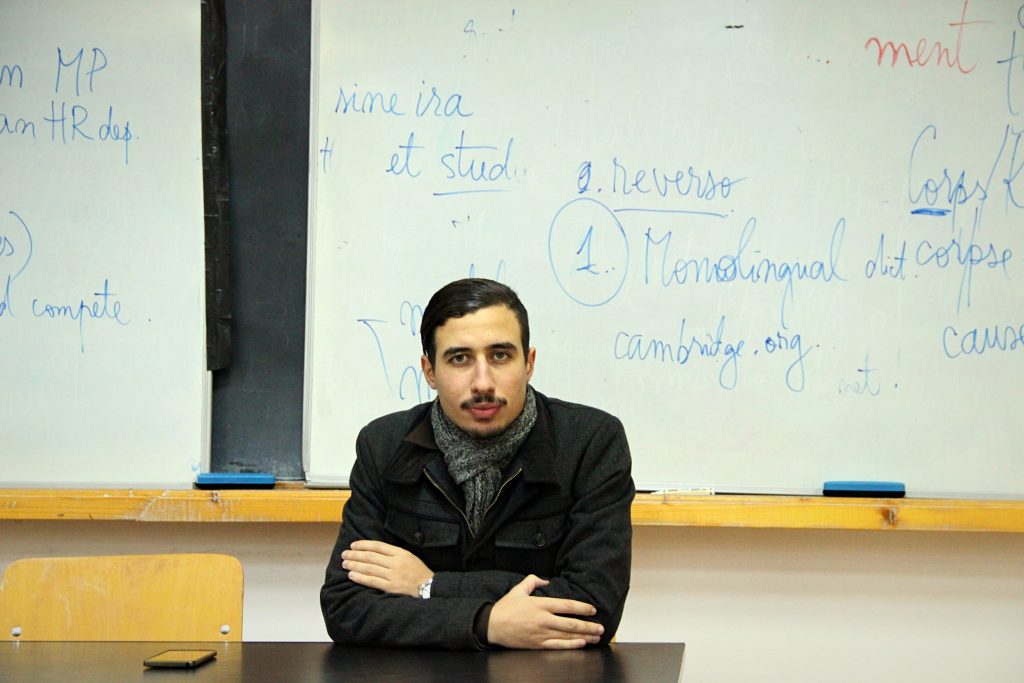
D. G.: Ce părere ai despre politica din România?
A. C.: În umila mea opinie, cred că situația politică de aici poate fi înțeleasă mai ușor atunci când o compari cu alte state. România a avut o istorie lungă de instabilitate politică, în special după căderea comunismului cu crizele politice pe care a trebuit să le îndure. Cu toate astea, nu trebuie să uităm că România încă este un stat democratic unde vocea poporului poate fi încă auzită prin alegeri transparente și libere. Nu poți compara această țară cu locuri unde democrația este parțial absentă (“democrații goale”) sau complet absentă (regimuri autoritare/ totalitare).
Cred că implicarea politică, în mod special din partea generațiilor tinere, va juca un rol important în repunerea României pe drumul cel bun. Consider că atunci când vine vorba de participare eficientă pentru schimbări politice, aceasta va crește odată cu nivelul de înțelegere al oamenilor asupra realităților politice și sociale ale României, dar și odată cu o mai largă cunoaștere a alternativelor politice disponibile. În plus, oamenii ar trebui să facă sacrificii și să prioritizeze interesul național în pofida celui personal.
D. G.: Povestește-ne puțin despre politica externă a României. Cum crezi tu că ar trebui ea să arate?
A. C.: Eu cred că e o diferență destul de mare între cum este și cum ar trebui să arate. Cred că ar trebui să aibă niște baze clare și inteligibile și să fie promovate interesele naționale atunci când vine vorba de clădirea acordurilor comerciale, militare și chiar culturale. Cred că România are potențialul diplomatic și oportunitatea de a deveni un actor regional important. În schimb, drumul către asta e dificil și personal cred că factorul important în restaurarea României ca putere regională este restructurarea interacțiunior internaționale sub cupola cooperării și beneficiilor mutuale (“win-win realtions”) și limitarea jocurilor cu sumă nulă (Zero Sum Games) care guvernează relațiile dintre marile puteri.
România va întâmpina multe obstacole în acest parcurs, cum ar fi amenințări la adresa proiectului european, incuzând “deficitul democratic” în instituțiile Uniunii Europene, crize de coeziune ale alianțelor din care face parte, pe lângă părăsirea blocului comunitar de către Marea Britanie și crize economice din interiorul anumitor state europene. Așadar, e o oportunitate uriașă de a participa activ la procesul de integrare în structurile Uniunii Europene și să își arate susținerea față de Proiectul European.
D. G.: Ai un mesaj pentru tinerii din România?
A. C.: Mesajul meu este unul foarte clar. Le spun tinerilor acestei țări să conserve dinamica actuală a schimbării și să continue pe această cale a inițiativei în a își construi propriul viitor. Le spun că sunt capabili să construiască un stat de drept în care principiile de bază ale sale sunt păstrate, în care libertățile și drepturile omului sunt respectate, în care justiția e independent în integralitatea prevederilor ei, în care dreptatea social devine o realitate evident în distribuția egală a resurselor publice, dar și în oferirea de oportunități egale la o viață decentă. Pentru a obține toate aceste lucruri, noile generații trebuie să rămână mereu în primele rânduri ale arenei politice și să se zbată pentru a obține un viitor mai bun pentru ei înșiși.
D. G.: Care este situația politică din Algeria? Ai de gând să mergi înapoi și să te implici în politica țării tale?
A. C.: Istoria Algeriei e destul de complicată, dar pot să descriu scena politică în câteva cuvinte. Armata algeriană, în special după perioada independenței și până astăzi, a participat la procesul de guvernare și de creare de președinți într-un mod autoritar. Oamenii au intrat într-un război civil cu armata în anii ’90 după ce armata s-a opus rezultatelor alegerilor, ceea ce a dus țara într-un deceniu de suferință care a curmat viețile a mai mult de 250.000 de oameni. Armata încă deține puterea și astăzi, dar oameni, în special după 22 februarie, nu au ezitat să iasă în stradă cu milioanele ca o expresie a dezacordului față de autoritarismul promovat de armată, dar și dorința de a trăi în libertate și demnitate. Scopul meu în acest moment este să îmi continui studiile, dar asta nu mă va opri din a lupta împotriva dictaturii sub care oamenii trăiesc în țara mea și oriunde în lume. Ideea de a mă întoarce în țară are legătură cu stabilitatea politică. Am șansa să mă întorc, dar asta ar însemna două lucruri: persecuție și închisoare.
The life of an international student in Romania
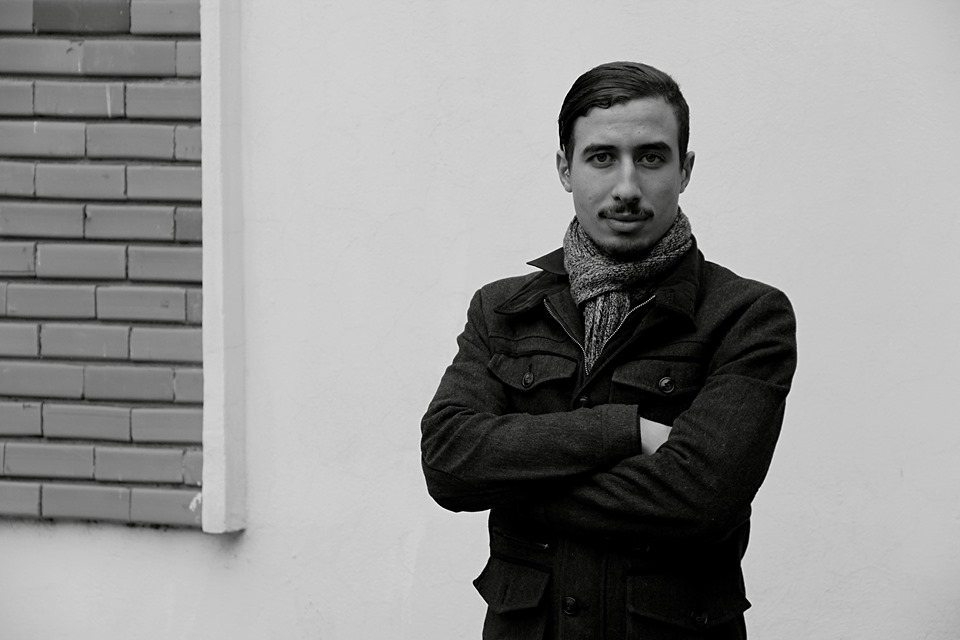
Adnen Chekhab is an international student from Algeria who studies political science at the University of Bucharest. He agreed to respond to a series of questions regarding the student life in Romania and why he chose to study here. He also makes a few sincere remarks about Romanian people, places and politics.
Dragoș Ghimpe: Tell us more about yourself. Where do you come from? How was your life before you came to Romania?
Adnen Chekhab: My full name is Adnen Chekhab, with a “ch”, as I’ve heard many people calling me “Kebab”. I was born in Algeria and spent most of my life there, I consider myself a blessed person because I was born in an «Academic milieu» in which both of my parents are professors, their objective as intellectuals was mainly to guide us, me and my other three brothers, through the path of studying by illustrating the importance of education in constructing our personalities and developing our skills for future life opportunities. Their strict but effective methods allowed us to learn things at a younger age. I was able to speak French at the age of 10 and English by the age of 12.
Going back to your question about my life before coming to Romania, it was kind of a non-stable life regarding studies and life objectives because I was the guy who knew what he wanted, but didn’t know the way to do it. I had to study almost a year in university back home and then I moved to France thinking that part of my family is there and I can probably find my path there, but that was not the case. After so many things I have done or, at least, tried to do, I ended up studying what I want in the language that I want which is Political science in English and, by a coincidence, here in Romania.
D. G.:What do you do in Romania?
A. C.: I am a full time enrolled senior student at the Faculty of Political Science at the University of Bucharest and I also work as a part timer in a multilingual company where I do service orientation for multiple projects. I am also interested in NGO’s focusing more on the human rights part, this is why am enrolled with some of my colleagues with voluntary work for NGO’s like Freedom House Romania.
The previous activities didn’t actually keep me from doing what I think is very important to do: political activism. I try my best to do as much as I can to raise political awareness for myself and the others in my home country and everywhere else I can. This is why we built up an electronic newspaper and many online platforms where we write and publish about different topics. I also have many works published by various newspapers and platforms, such as Geopolitica, USAREALLY and others. The articles that I publish do not solely concern the political situation in my home country, but also the Middle Eastern region, which became a main topic of interest for me, not just because of the common cultural, religious and political elements that we share with Middle Eastern countries, but also because the region has always been and still is the most important geopolitical hot zone in this world to observe and to study.
With the previous activities mentioned above, I can barely have time for other activities. I do enjoy getting out with friends from time to time and also enjoy playing videogames whenever I have the possibility to do so.
D. G.: How have you come to choose Romania for your academic path?
A. C.: As I previously mentioned, coincidence brought me up here. A suggestion made by my older brother, which I didn’t take a second to think about, brought me up here. Romania had the main elements that I was looking for, which were the field of studies and also the language, which is English. I know some of the readers will ask “why didn’t I choose the same field of study and did it in France?” Well, we shouldn’t forget the economic aspect: studying here in Romania is much cheaper than doing it in France or any other place I had in mind and this element also played a role in making my choice.
D. G.: How do you feel about Romania? How is life here?
A. C.: You all heard the same story from foreigners that Romania is beautiful and other such things. Well, it is more than you think, you just have to really see it, travel through it and you will discover that beauty. But the real beauty is not in its beautiful medieval castles, and wonderful Transylvanian cities. No, it is the hearts of its people. We know that everywhere there are good and bad people, but I always try to see and admire the impact that good people make.
I consider life here, and especially the financial aspect, to be much easier than many other places. Yes, the quality of life is different, but still, you can develop yourself here as in many other places that some people consider better places to live.

D. G.: What do you think about politics in Romania?
A. C.: From my humble point of view, I think the political situation here is easier to undertsand when it is compared to many other countries. Romania had a long history with political instability especially after the fall of communism and also the political crises that the country had to endure, but still, we shouldn’t forget that Romania is more or less a free, democratic country where still, the voice of people can be heard through free and transparent elections. You can’t compare this country to places where democracy is partially absent (empty democracies) or totally absent (authoritarian regimes).
I believe that political awareness, especially among the new generations, will play an important role in Romania’s return to the right track. I think that the higher the level of human understanding of the political reality is and the higher the knowledge of the available and possible political alternatives to the political reality of this society and the world in general is, the more effective the participation in the process of political change will be. People should also make sacrifices and prioritize the national interest over any personal interests.
D. G.: Tell us a bit about the foreign affairs of Romania. How do you think it should look like?
A. C.: Actually, there is a big difference between how it should be (at least from my point of view) and how it is. I believe that Romania’s foreign affairs should be based on clear and intelligible foundations, the most important of which is the promotion of national interests and the building of cultural, military, and commercial exchanges on this basis. I believe that Romanian diplomacy has a lot of qualifications and opportunities to push this country into becoming an important regional player. But the road towards this goal is a difficult one and I personally believe that the important factor is the restructuring of Romania’s regional and international interactions under the roof of mutual cooperation and mutual benefits (Win-Win Relations) and the use of global networks to stimulate cooperation and to limit the Zero-Sum Games that govern the relations of the major powers.
Romania will face many recoils from regional problems, including threats to the European project, including “Democratic Deficit” in the institutions of the European Union, crises of cohesion of alliances, in addition to the British separation from the union, and economic crises within European countries. Therefore, it has an opportunity to actively participate in the integration process within the structure of the European Union.
D. G.: Do you have a message for the young people of Romania?
A. C.: My message will actually be a clearly defined one. I tell the youth of this country to preserve the dynamic of change and to complete the path of initiative in making its future. I tell them that they are able to build a state of law in which the nation’s constituents are preserved, in which freedoms and human rights are respected, in which justice is independent in the integrity of its provisions, where social justice becomes a reality embodied in the equitable distribution of national income and the provision of equal opportunities for all in a decent life. In order to achieve all these gains, the new generations must stand in the front ranks of the political arena and strive to achieve a better future for themselves.
D. G.: How is the political situation in Algeria? Do you plan on going back and involve in the politics of your country?
A. C.: The history of Algeria is somewhat complicated, but I can describe the political scene there in a few words. The Algerian army, especially after the independence period, and to this day participated in an authoritarian fashion in the political decision-making process and the manufacture of presidents. People entered into a civil war with the army in the 90’s after the army turned against the election results, which brought the country into a black decade that claimed the lives of more than 250,000 people. The army is still holding on to the political decision making stick till this day, but the people, and since the 22nd of February, did not hesitate to go out on the streets in millions, as an expression of their rejection of the military authority and their desire to live in freedom and dignity.
My goal for the moment is to continue with my studies but this won’t stop me from continuing on the path of struggling and fighting against the dictatorship that my people live or any other people around the world. Having the idea of going back is related with political stability, I have the chance to move back there but that will mean two things: persecution and jail.
